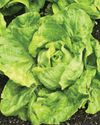
Once established in your garden, strawberries, raspberries, blackberries and blueberries will reward you year after year with fresh, delicious fruit bursting with flavor you just can’t buy in a store. The secrets to the healthiest plants and most prolific harvests all lie within proper preparation of the growing area. Prior to planting your first berry plant, consider the following five actions to ensure the tastiest and most exceptional berries possible.
DETERMINE PLANTING HISTORY
Before you invest a great deal of time and effort into preparing a particular spot for your berries, consult your records on what has grown there in previous years. Avoid planting berries in areas where tomatoes, peppers, potatoes and eggplants have grown in the past four to five years, as plants in the nightshade family can carry a soil-borne disease called Verticillium wilt, which could attack your vulnerable new plantings. Because wild brambles can also carry this disease, clear any that you spot in the surrounding area. If you have goats, this is the perfect job to task them with!
IMPROVE DRAINAGE
One of the most critical factors for growing any type of plant successfully is good soil drainage. If roots are unable to get the proper balance of air, water and nutrients they need from the ground, a plant’s growth will suffer.
To determine how well your soil drains, dig a hole about 2 feet deep and 1 foot across. If the dirt isn’t completely dry, cover it with cardboard or plastic for a few days until it is. Once dry, fill the hole with water and observe what happens. If it takes less than five minutes for the water to drain out, the soil is too loose, or sandy. If it takes more than 10 minutes, it’s heavy clay. Both types of soil can be improved by covering the growing area with several inches of compost or other organic matter, and then digging it in to a depth of 9 to 12 inches.
Bu hikaye Hobby Farms dergisinin January - February 2025 sayısından alınmıştır.
Start your 7-day Magzter GOLD free trial to access thousands of curated premium stories, and 9,000+ magazines and newspapers.
Already a subscriber ? Giriş Yap
Bu hikaye Hobby Farms dergisinin January - February 2025 sayısından alınmıştır.
Start your 7-day Magzter GOLD free trial to access thousands of curated premium stories, and 9,000+ magazines and newspapers.
Already a subscriber? Giriş Yap

The RISE of Opportunist WEEDS
Be prepared to see increasing changes in weeds we fight, such as poison hemlock and poison ivy, and in the crops we grow.

LIVESTOCK Health
Prepare yourself for how to spot symptoms of illness in your farm animals so that you can get them help before it's too late.

CUT FLOWER Farming
If you're considering growing flowers for sale, brush up on these five key things to know before diving in.

WINTER Survival
Keep your land, animals and yourself in good shape this winter with this helpful advice.

COVERAGE CONCERNS
Avoid common insurance mistakes for rural and hobby farm businesses.

Preconditioning CALVES
Follow our step-by-step guide to get more money for your calves.

Soil Conservation
Often, outside of having a specific problem that needs to be addressed, soil conservation isn't something every farmer readily thinks about. Yet conserving the soil should be at or near the top of every farmer owner or manager's list of concerns because absent the prevention of soil erosion, we have the opportunity for another dust bowl.

Year-Round Lettuce & Salad Mixes
It's easy to think of salad greens as just a spring- or fall-garden crop, but it's possible to enjoy freshly harvested lettuces, mustards and more from your own garden year-round.

Barn Improvements
Days are never long enough for a farmer. From dawn to well into the night, tasks arise that often require immediate action. Having to search for tools or equipment is an enormous time waster and incredibly frustrating when you can't find what you need, especially when you know you have it.
